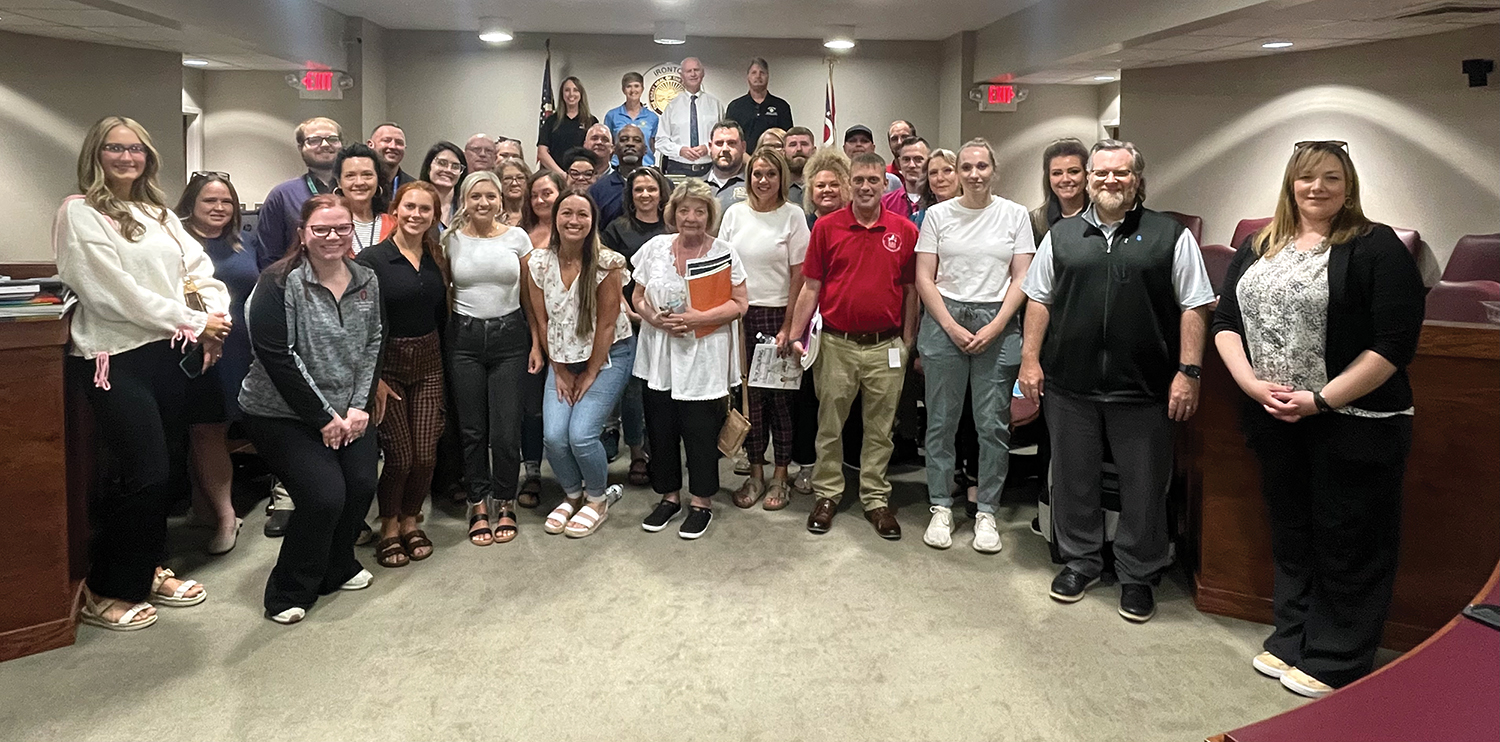A vision for Grandview purchase
Published 3:22 pm Wednesday, March 22, 2017
Group approves expenditures for STEM+M school
The Lawrence Economic Development Corporation board, on Tuesday morning, heard details about the LEDC purchase of the Grandview Inn property. Executive Director, Dr. Bill Dingus, explained that the plan for the property is to redevelop it for other projects, after razing two of the buildings on site, while also maintaining around 60 of the current 256 rooms for rental. The LEDC has budgeted just over $100,000 for demolition costs of rooms that were damaged in a previous fire, as well as a maintenance building that has fallen into disrepair.
The remaining 60 rooms, and the attached restaurant building, will be maintained as they are. Dingus said that although the restaurant building needs a new roof, the building itself is in good shape overall.
Dingus said that after their initial purchase, they weren’t sure what plans would be for the building, but, after meeting staff and being impressed by their dedication to their job, the LEDC is determined to maintain the building as a hotel with the decreased capacity.
One of the changes they have already made to hotel policy is requiring that rooms be reserved with a credit card, even if the customer ultimately decides to pay cash. The premise behind this change is that by requiring a legitimate credit card be kept on file, the hotel can cut down on illicit activity such as drug dealing, where individuals often operate on a cash-only basis.
Dingus also noted that one of the problems they have is that the pipes for the facility are not large enough to support a sprinkler system, which may discourage some other folks from developing on the surrounding property. In order to operate a sprinkler system, pipes carrying water into the building need to be at least six inches in diameter. The pipes from the Hecla water system that serve the inn, however, are only three inch. Dingus said that this problem could be solved, however, by adding a new water tank.
“We’ll never have the flow (needed) unless we add a new tank,” Dingus said.
Despite the acknowledged shortcomings with water infrastructure, Dingus said that the LEDC would like to move forward with obtaining adjacent lots, to increase the developable land to 16 acres, with hopes of a strip development there providing space for new business opportunities in the future.
The LEDC also moved to approve LEDC and Chamber of Commerce budgets for 2017. The LEDC budget has also been updated to reflect operating expenses and profits from the Point Industrial Park. In the past, the Point’s finances have been kept separate, and then figured into the LEDC budget at the end of the year. The change simplifies the process by including all Point expenditures in the LEDC budget.
“The budget is more reflective now of how we treated (the Point),” Dingus said. “It’s just a subsidiary of LEDC’s budget.”
The LEDC also discussed their plans to support the new Tri-State STEM+M academy, by donating space and financing renovations for classroom use. The group approved budgeting $260,000 plus a margin of 10 percent, if needed, for remodeling the space to include restrooms and open classrooms. Approximately 12,000 square feet of the 17,000 square foot facility will be refurbished as classroom space, with the remaining 5,000 square feet left as open space for additional future growth or multi-purpose use.
Dan Evans and Doug Korstanje, who also serve on the STEM+M board, abstained from the vote.
The space will be donated for the first couple of years, Dingus explained, with a progressive lease to follow. Dingus noted that the LEDC contributes to other schools in the area through their property tax contributions, but that STEM schools cannot utilize tax levy funds to fund their operations.
In other action, the LEDC moved to approve a $50,000 commitment to the Tri-State Angel Investment Group. The investment group is moving forward with a new fund, with buy-in at $25,000 per unit, down from a previous requirement of $50,000.
The LEDC also approved two loans for the purchase of two separate properties, one at a cost of $187,500 and the second at a cost of $221,250. The loans are for three years each. By separating them into separate loans, instead of a single loan to purchase both properties, Dingus explained, it gives the LEDC more flexibility if they were to find investors who wished to purchase and develop one of the properties before the loans were fully repaid.
The LEDC also discussed plans for a Christmas Market, associated with the annual Festival of Trees as well as an upcoming high school business pitch contest. The pitch contest, which TechGROWTH Ohio Executive in Residence Michael Thompson described as “like Shark Tank” will pit high school teams against each other in competition for $6,000 to the winning team.
Teams from South Point, Ironton St. Joseph, Green, South Webster, and Portsmouth high schools, among others, will compete at Ohio University Southern on March 28, at 6 p.m.





